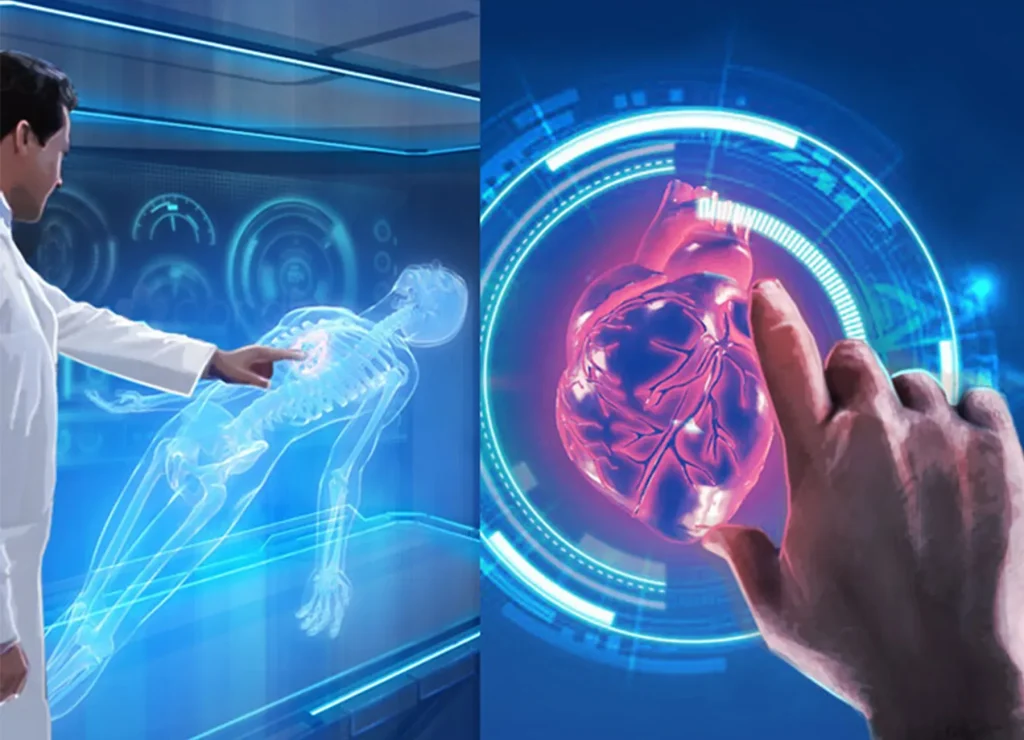The Future of healthcare technology is reshaping how care is delivered, how decisions are made, and how patients experience the medical journey, expanding from acute hospital encounters to continuous, embedded support in home and community settings that leverage real-time data, patient-reported outcomes, and adaptive workflows. As digital tools, data analytics, and connected devices proliferate, AI in healthcare is driving earlier detection, personalized risk assessments, decision support that reduces clinician cognitive load, and more informed clinical choices that harmonize laboratory insights with bedside care, improving consistency across teams. Industry leaders track healthcare technology trends that prioritize interoperability, robust cybersecurity, privacy by design, scalable analytics, and patient empowerment, while easing administrative burdens and enabling clinicians to focus on high-value interactions and patient outcomes. Telemedicine advancements are widening access to specialist expertise, enabling remote monitoring, virtual rounds, asynchronous consultations, and timely interventions that prevent deterioration, support chronic disease management, and improve outcomes even in rural or underserved populations. Emerging pharmacogenomics and biomarker-guided therapies illustrate how data-driven care plans adapt to each person’s biology, lifestyle, and environment, ultimately delivering safer, more effective care at a lower total cost.
Across the industry, a new era of health technology is taking shape, characterized by smart sensors, predictive analytics, and interoperable systems that knit together patient data from diverse sources. Leaders talk about next-gen care platforms, digital health ecosystems, and cloud-powered tools that support clinicians with faster insights, safer decisions, and more responsive patient engagement. From virtual care to automated diagnostics and personalized wellness programs, this shift hinges on trust, privacy protections, and governance that keep patient rights at the center. Ultimately, the story is about connected care experiences where patients collaborate with teams across settings, powered by transparent data sharing, adaptive devices, and continuous learning feedback loops.
Future of healthcare technology: AI-powered insights and patient-centered care
The future of healthcare technology is not a distant horizon but a rapidly evolving reality reshaping how clinicians diagnose, treat, and support patients. AI-enabled analytics, natural language processing, and predictive models augment decision-making, turning vast electronic health records and real-time sensor data into actionable insights. This shift enables earlier diagnoses, personalized treatment pathways, and proactive risk management, aligning with broader healthcare technology trends that prioritize safety, interoperability, and patient-centered experiences.
As precision medicine and digital health innovations mature, care delivery becomes more tailored to an individual’s genetic profile, lifestyle, and environment. AI assists with image interpretation and drug discovery, while secure data sharing across systems ensures clinicians have a longitudinal view of a patient’s health. However, realizing these benefits requires robust governance, bias mitigation, and strong clinician oversight to maintain trust and protect privacy, ensuring that what is learned from data translates into safer, more effective care.
Telemedicine advancements and digital health innovations expanding access and outcomes
Telemedicine advancements are breaking traditional barriers by enabling virtual visits, remote patient monitoring, and real-time triage, extending care beyond the boundaries of clinics and hospitals. For patients in rural or underserved areas, these capabilities translate into timely access to specialists and continuous management of chronic conditions, supported by digital health innovations such as mobile health apps and secure messaging.
Integrating telemedicine with interoperable health information systems and precision medicine data creates a seamless, enriched care journey. As patients participate more actively in their care, data-driven feedback loops and remote monitoring generate insights that improve outcomes while reducing unnecessary visits and costs. To sustain this progress, stakeholders must address equity, data privacy, and reimbursement models, ensuring telemedicine advancements deliver lasting value.
Frequently Asked Questions
How will AI in healthcare reshape diagnostics and decision-making in the future of healthcare technology?
AI in healthcare is poised to assist clinicians with image interpretation, risk prediction, and personalized treatment planning, enabling earlier and more accurate diagnoses. It supports decision-making, speeds up research like drug discovery, and helps optimize resource allocation in hospitals. To ensure safety and trust, deployment must address bias, maintain transparency, and preserve clinician oversight.
What are the top healthcare technology trends driving telemedicine advancements and precision medicine in the coming years?
Key healthcare technology trends include digital health innovations, enhanced interoperability, and secure data analytics that enable remote monitoring and virtual care. Telemedicine advancements, supported by robust privacy and cybersecurity measures, extend access to care and integrate with broader health information systems. At the same time, precision medicine—driven by genomic insights and biomarker data—offers tailored therapies, while patient-centered tools and governance structures ensure equity and safety.
| Topic | Key Points | Potential Impact |
|---|---|---|
| Driving Forces Behind the Future | Fusion of information technology with clinical practice; large-scale data capture from EHRs, wearable devices, genomic sequencing, and real-time monitoring; emphasis on interoperability, security, and patient-centered experiences. | Enables proactive, data-driven care; improved interoperability and patient-centered experiences across care settings. |
| AI in Healthcare: From Lab to Bedside | AI supports image interpretation, pathology, radiology; ML analyzes complex data to predict disease trajectories, optimize treatment plans, and support resource allocation; accelerates drug discovery and clinical trials; requires bias mitigation, transparency, and clinician oversight. | Improved diagnostic accuracy, tailored treatments, faster development of therapies; enhanced safety through governance. |
| Telemedicine Advancements: Care Beyond Four Walls | Virtual visits, remote monitoring, and digital triage tools reduce geographic and logistical barriers; support chronic condition management; complements in-person care; data integration remains a challenge. | Expanded access, timely consultations, continuous management; improved outcomes with equitable access considerations. |
| Precision Medicine and Genomic Insights | Tailoring treatments by genetic makeup, lifestyle, and environment; genomic sequencing, pharmacogenomics, and biomarker discovery; ethical stewardship and privacy. | Better outcomes and targeted therapies with fewer adverse effects; supports efficient care pathways. |
| Digital Health Innovations and Interoperability | Mobile health apps, patient portals, secure messaging, and analytics; interoperability as an enabler; standards-based data exchange and privacy-preserving computation. | Improved care coordination, reduced costs, greater trust; scalable digital health ecosystems. |
| Robotics, Automation, and Smart Care Environments | Robotic-assisted surgery, automated logistics within hospitals, and smart devices; enhances precision, reduces variability, and frees clinicians for high-value tasks; new workflows, training, and governance models required. | Increased safety and efficiency; improved throughput; supports rehabilitation and independent living; workforce adaptation needed. |
| Patient-Centered Care and Data Responsiveness | Timely information, clear communication, and active patient participation; data-driven insights improve adherence and outcomes; intuitive interfaces, accessible education, and culturally competent design are essential. | More personalized care, better experiences and outcomes; reduced disparities through inclusive design. |
| Ethical, Legal, and Social Considerations | Privacy, security, and equity; bias and governance; accountability and transparent safeguards; ensure equitable access to advanced therapies and digital tools. | Trust and responsible deployment; policy and governance frameworks; safeguards to prevent widening disparities. |
| What to Expect Next | AI-informed decision support, seamless telemedicine integration, and broader access to precision medicine; wearables and remote monitoring underpin population health; cybersecurity and data standardization essential. | Faster adoption, proactive interventions, and a resilient, scalable ecosystem. |
Summary
Future of healthcare technology is poised to redefine the entire care continuum, merging intelligent analytics, connected devices, and patient-centered design to deliver safer, smarter, and more accessible healthcare. This evolving landscape integrates AI-enabled decision support, expanded telemedicine, and precision medicine within interoperable digital ecosystems, with attention to privacy, security, and ethical governance. As patients, providers, and policymakers collaborate, the focus will be on delivering proactive, value-driven care that improves outcomes while reducing costs and disparities. Achieving this vision requires robust standards, continuous clinician education, and vigilant stewardship of data and algorithms.



